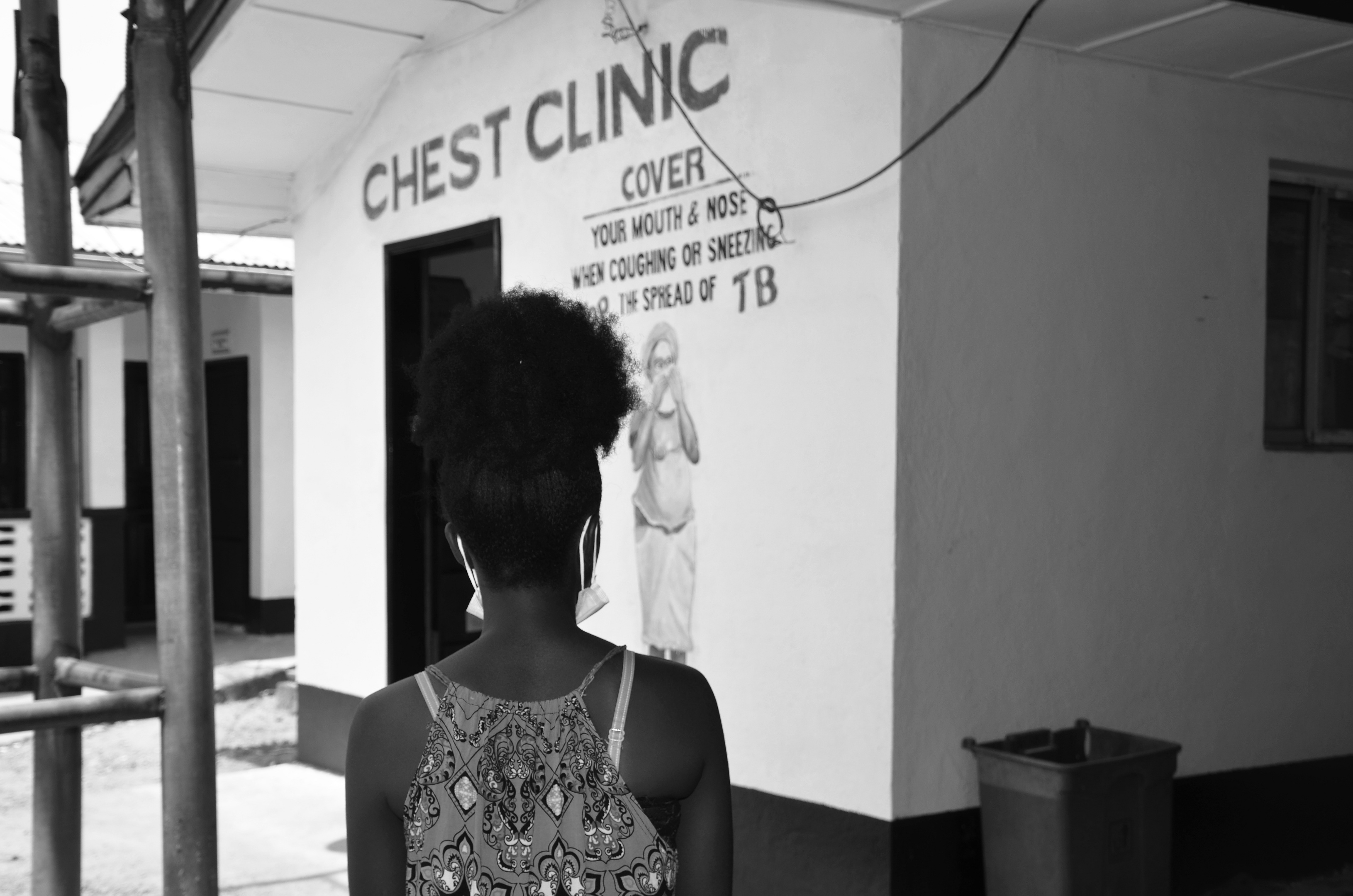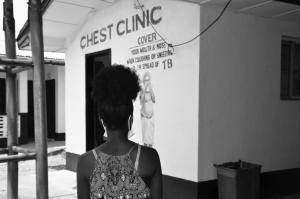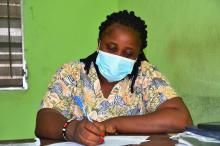ALL I NEEDED WAS LOVE, CARE, AND TREATMENT- MY JOURNEY AS A TUBERCULOSIS SURVIVOR

When Massah H. Sherrif tested positive for tuberculosis in June 2021, it happened at a time she never expected, and being young, she never considered herself to be at risk. It all started on a day like any other when she felt she was catching a cold and feeling malaria-like. She took time to go to Redemption hospital in Monrovia, Liberia, where she was treated for malaria and acute respiratory infection following her physician’s assessment as per the presentation of her signs and symptoms. She went back home, took the treatment as advised but she later started coughing blood and grew weaker by the day. She decided to go back to the hospital for a further check-up. Upon further examination, Massah tested positive for tuberculosis.
“I was shocked, felt devastated and hopeless knowing I had my siblings to take care of and was still in mourning over the passing of my mother a few weeks ago - the news that I have tested positive for tuberculosis did not make it any easier. As young as I am, why would I test positive for tuberculosis? So many unanswered questions flowed in my mind.”
June 2021 will always be a month to remember in Massahs’ life, being a month her mother passed on and at the same time, it’s when she tested positive for tuberculosis.
Massahs’ made efforts to get her treated.
“I was drained emotionally getting to know that I have tuberculosis but my auntie together with other nurses encouraged me to get on the six-month treatment journey. The first days of treatment were a nightmare, it was tough but over time I got used to the routine and made sure I never missed my daily 5 am medication time until I got cured,” narrated Massah.
Getting back to the community was not easy. Stigma in the Massahs community made her not disclose any information to any of her neighbors.
“My mother’s family relations did not receive the news well. I was isolated, they told my siblings not to associate with me, not to eat with me. Despite all this I fought for my life and only focused on getting better,” she said.
During her routine medical visits, Massah also got excellent counseling at the center which helped her pull through and is tuberculosis-free.
Massah’s situation is a mirror of what many patients that have suffered from tuberculosis experience. She received excellent support services through the government implemented tuberculosis program that provides free comprehensive services with support from the Global Fund and World Health Organization (WHO). In 2021 Liberia registered 7446 positive tuberculosis cases with a treatment success rate of 77% making steady progress towards the 90% target recommended by WHO.
Tracey T.J Kortiimai – 37, a nurse at Redemption hospital serving as the tuberculosis focal point cited supportive mental health services as one key component in the management and care of tuberculosis patients. From her experience over time, tuberculosis is still considered a taboo in some communities in Liberia and this has an adverse effect on the attitude of patients towards treatment. Through the National Tuberculosis Programme, all tuberculosis patients are provided with a comprehensive treatment package including counseling services.
According to Kortiimai, due to stigma and discrimination in the communities, young people find it hard to complete the treatment regime. Meanwhile, substance abuse is high among young people and this contributes to the prevalence of the disease among the younger generation. When they start treatment and feel they are getting better, coupled with associated stigma in the community, they discontinue treatment, adding to the increasing defaulter rate of more than 5%, which in turn contributes to the emergence of drug-resistant tuberculosis. Stigma deprives tuberculosis patients of their right to quality treatment and care.
“There’s a need for continuous investment in tuberculosis programming. With the coming of COVID-19, more focus was shifted towards the pandemic but tuberculosis is still there,” said Kortiimai.
There is a need to invest in the fight against tuberculosis disease in Liberia. Presently, only 35 % of the tuberculosis National strategic plan is funded by the Government, Global Fund, WHO, and other partners. To increase coverage of tuberculosis services and reduce the catastrophic cost incurred by patients, we need to vamp up investment so that the 65% funding gap is covered to end tuberculosis in Liberia,” said the National Tuberculosis Control Program tuberculosis/HIV ACSM Coordinator, Ms. Melinda Yei Sarblee.
More investments are needed for the tuberculosis control program to improve case finding and nutritional support for tuberculosis patients, which will improve compliance to treatment and increase rates of recovery.
"As WHO, we are providing technical and financial support to the Ministry of Health - Liberia to improve the national response to tuberculosis – improving human resources and laboratory capacity, updating the National Strategic Plan and Integrated Treatment Guidelines, and strengthening community systems and engagement to increase service quality and coverage in ensuring no one is left behind- however there is still need for more investments to End tuberculosis in Liberia,” said Dr. Moses Jeuronlon – Strategic Health Information officer-WHO Liberia.
Massah emphasizes that through her experience as a tuberculosis survivor she knows it’s a condition that is manageable and can be cured.
“It’s not the end of the journey - the key is not to miss your medication and complete treatment. The hospital staff showed me love and care - I was counseled and encouraged,” said Massah.
Today Massah is back to doing what she loves- cooking. Massah runs a small-scale food business, where she cooks and sells food on the streets of Monrovia. She is now able to give her three siblings the care and attention they deserve.
Liberia ranks as one of the top 30 countries with high tuberculosis infection rates globally and is one of nine highly endemic countries in the African Region. There are 370 Health facilities providing tuberculosis services in the country. In 2020, the National Tuberculosis Program confirmed and treated 6,990 patients and 7,446 patients in 2021, representing an improvement in the treatment outcomes. However, the treatment success figures would have been even better if it were not for the COVID-19 pandemic, which affected patronage of routine services. This places the End tuberculosis progress at risk and is an indicator of the need to increase investments in tuberculosis in ensuring equitable access to prevention and care in line with the National tuberculosis strategic Plan.
Tuberculosis is the world's second-leading infectious killer. Poverty, stigma, and discrimination are some of the disease's social and economic effects. Despite the fact that tuberculosis is a preventable and treatable disease, global efforts and investments fall far short of what is needed to end the global epidemic. Since 1882, World TB Day is observed every year on March 24 to raise public awareness and understanding of the disease. Invest to End TB-Save lives.




